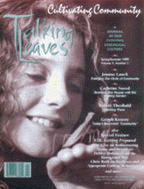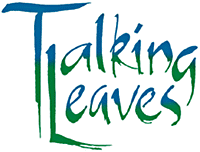

Most of the people that are in our jails and prisons throughout the country are there because they're poor. They're there because they've sold and used drugs. Unfortunately, they're there because they're people of color.
What really is for me the most important part of our project is that we have people who are in need of restoration. The people in need of restoration are the ones who are working very hard to restore themselves, but also to restore their neighborhoods, their communities, and their families.
Since I started the program in 1982, more than 10,000 prisoners have been in it. We've grown a lot of food that we've given to soup kitchens and senior centers and community centers. Growing food and giving the food to these places is what has helped to restore the prisoners and the participants in the program because they're able to give something. They're able to give of themselves.
Over the years, people have asked me, "Well, why don't we sell the food instead of giving it to the community centers?" That's probably one of the most important things we do, because you do have to give to live. In giving the food that the people work very hard to grow, they begin to care about themselves, they begin to care about other people.
In growing the food, they begin to learn about their bodies and about health. I've over the years always asked people, "When you got arrested, what kind of food were you eating?" Generally they say the same thing. The poor, when they get money now, go to McDonald's. I'm seeing more and more people who aren't eating food at home. I have concluded over the years that this is why they are using drugs. This is why they're craving crack. It's because of their diets. Having talked to thousands of prisoners over the years, I'm positive that that's the case. They were not eating vegetables. Many of them have never eaten vegetables that didn't come out of a can or weren't frozen. In San Francisco, in the neighborhood where most of the people in our jail live, the one store that is there doesn't have fresh vegetables for the most part.
We're really trying to change that with the Garden Project, growing food and trying to get the food to the community that needs it and where it's grown. Our garden is about a half acre here in San Francisco in Bayview Hunter's Point, a community of mostly African-Americans where there are at least two Superfund sites. We invite people from the community to come to the garden. We invite seniors to come, and they come and they bring other people, and we're very glad to be able to say, "We'll pick those vegetables for you."
We're trying to teach people about nutrition and health not just by lecturing to them, but by showing them. So we make food and eat it in the garden. We have lunches in the garden using the food that we grow. The prisoners and the former prisoners tease me quite a bit because they say it's always vegetarian. "Don't you ever eat meat?" But what they're doing is learning to eat vegetables, and it's something that really offers to them a way to feed their families in addition to whatever they can come up with just on their own.
But what also happens at the Garden Project, while the seniors are picking the vegetables, is the seniors see the same people that maybe were on the corner trying to take their purses or knock them out and rob them. They see the same people now giving back and trying to help. That changes something for them. I know the prisoners begin to feel badly about what they have done in order to support their habit in preying on other people. The garden does that. Growing this food does that.
What really disturbs me is that as citizens we are allowing our government to spend an amazing amount of money to keep people, mostly people of color, in jail for really the crime of being poor. I think there has to be a time where we say as a community, where we say, "No, in order to heal our communities we need to involve the people who have hurt the community." I'm not a mathematician, but it seems like the money that we put into sending a person back and forth to state prison for ten years is a lot of money. We're talking $25,000 a year, or more when you calculate what the person being in jail does to the family that's involved.
My son just got a job working at a center here in San Francisco in Visitacion Valley in a community that used to be really, really badly plagued by drugs and gangs. But something's happening in Visitacion Valley. The people seem to be coming together. When my son got this job working in this center, he said, "You know, Mom, the thing that really bothers me about it, is not that the kids are bad, because they're not bad. They're no different than any other kids I've seen, but everybody treats them like they're bad. They're just kids." What I know is that what happened to these kids could very well have happened to me and my children. But the difference was that I got a job. The difference was I was able to stay in school because I had a job. I was able to support my children.
My daughter graduated from Barnard last year with high honors, and when she walked across that aisle, I cried the whole time. I was hysterical. Everybody was, like, "Cathrine, why are you crying? This is good." But I was so happy because I remember when I stood in a line to get bread for her at a soup kitchen. But now I know that she and my son are able to help others because they had the benefit of me having a job. So when people ask me what am I trying to do, I guess what I'm trying to do is give people work so that they have worth. It's been said before, but when you do something, you feel good about yourself. Imagine if you had nothing to do and nowhere to go all day. If the only place you had to go was some corner, how would you feel about yourself, and how would you feel about the people around you? Not very good.
So my son organized a big party for Halloween for the kids. This year, I'm proud to say that at the jail we've been able to grow over 1,000 pumpkins which we will hand out to schools. We delivered the pumpkins to my son's center in the giant sheriff's flatbed truck. The ex-prisoners were unloading these giant pumpkins and the kids were jumping up and just screaming. A lot of them had never even had a pumpkin before.
The people in our program and the deputies said that delivering the pumpkins to the center was the thing that meant the most to them in their whole career. The people in our program were so proud and so happy that we got out the pumpkins and weeded them and watered them and cared for them, and then we were able to deliver them. When people ask, "How do you break the cycle of crime?" I think you break it with pumpkins.
Thousands of people come to me--and they do, every day--and say, "Cathrine, can you hire us?" I can't tell you how hard it is for me to say, "I don't have the money to hire you." Because I know that when I do that, they go to the street and they go back and they end up in jail or they end up dead. And that's a crime. I hope and pray that as a country we begin to look at the fact that people in jail need education, and we could put that money there and they can be taught to work. They can be given an opportunity to contribute to their community. They can learn that, and we can do that.
�1999 Talking Leaves
Spring/Summer 1999
Volume 9, Number 1
Cultivating Community
We welcome your letters!
For a sample copy of the Spring/Summer 1999 issue, "Cultivating Community," send $6 to
